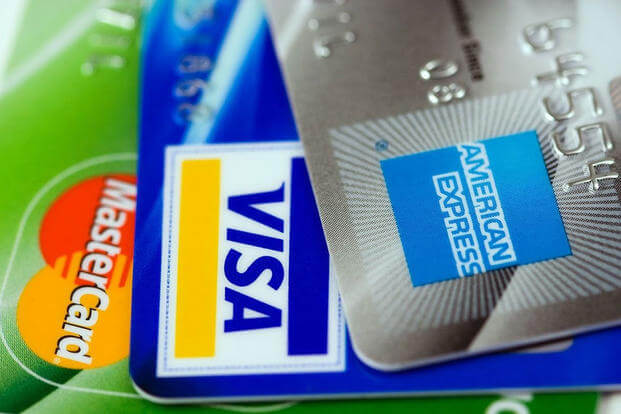Could this be you? You're a military spouse working for a civilian employer, who just informed you there will be no raises this year -- but at least you still have a job. Gas prices have fallen, but your heating bill is still sky high. One week at the commissary, you get to the checkout and realize your checking account doesn't have enough money to cover the bill. You pull out a charge card and tell yourself you'll pay it off later.
The next week, your toddler is running a high fever that drives you to the emergency room. When the credit card bill arrives, not only are you unable to pay off the groceries, you're behind because of lost work staying home with the baby. So you charge another month's groceries, plus the emergency room fee that insurance didn't fully cover.
When you scrape together your credit card payment, you realize you're two days late. The credit card company raises your interest rate to more than 25 percent annually. The minimum payment goes up again. Finance charges begin to mount. Then you need a car repair. In a matter of weeks, you've accumulated a balance of several thousand dollars -- and can't pay more than the minimum payment.
Like many Americans, you've slipped into insurmountable debt. Worst of all, it piled up without your making a conscious decision about it.
These risks are especially frightening in today's economy. And, due to the credit crunch, many credit card issuers are lowering credit limits or even closing accounts. If you rely too much on your credit cards, you could find yourself with the rug pulled out from under you by your credit card lender.
There has never been a better time to get a handle on your credit card debt. Take note: Even if you feel like you're fighting an uphill financial battle, you can minimize the damage of mounting debt. By making a plan and taking steps to correct the problem, you can build a better future for your and your family -- free of crippling credit card debt.
1. Stop charging. With credit cards often serving as "emergency funds," be sure you're not doing additional damage to your financial well-being by charging things you don't need. Before your next charge, apply this litmus test: Ask yourself if you would still make the purchase if you had to borrow the money to do so. If not, don't buy.
2. Apply all your extra income to reducing debt. In today's climate of economic uncertainty, avoid luxuries unless you can pay for them up front. Budget for your necessities, then commit to yourself that you will apply everything extra to debt or savings.
3. Always pay on time. Even if you only can make minimum payments, send your payment on time. Late payments risk higher interest rates (penalty rates can reach as high as 31 percent), which mean still higher minimums. Some credit card companies can even raise your interest rate if you pay late on another creditor's account (new laws going into effect this year will restrict this action). Plus, late payments mean late fees, adding to debt. Help yourself succeed by setting up automatic, online payments through your bank or credit union. Some cards allow you to choose your own payment due date -- picking a date right after payday may help. Or plan to mail the minimum payment in immediately upon receipt of the bill.
4. Eliminate highest-interest-rate debt first. First and foremost, make your mortgage or rent payment -- never risk your home. Then list your credit card and loan payments. For each bill, note the current balance and the interest rate. Then establish a plan to knock out your debt: Make the minimum payment on all debts except the one with the highest interest rate. Pay as much as possible on that highest-rate debt. When that total is paid off, continue paying the minimum on all debts except the one that now has the highest interest rate, paying as much as possible on that bill. Save tax-deductible debt, such as student loan debt, for last.
5. Transfer to lower-rate cards. Check carefully into transferring your balances to lower-rate cards, making sure that their interest rates do not balloon after a given period. If you're not already a member, one resource for cards may be United Services Automobile Association (USAA). USAA offers banking, investing and insurance to members of the military, veterans and certain others who served the nation, and their families.
6. Negotiate your rate. If you have a history of always paying on time and accumulated more debt than usual, you may be your creditor's ideal customer. According to IndexCreditCards.com, if your rate is above the national average of about 14 percent , you can call your card's customer service line and ask if they can give you a better rate. You may also need to indicate that you want to transfer your balance to another issuer's card.
7. Seek help. You may not realize how many sources of help you have to get out of debt, especially if the situation was caused by a short-term problem such as a medical emergency. For instance, you could borrow from relatives, borrow against life insurance or retirement funds, or consolidate old debt onto a no-interest credit card. For more severe debt hardship, or when you cannot make even minimum payments research debt relief alternatives carefully. For ideas and a starting point, visit Bills.com.
In today's environment, almost anyone can fall behind temporarily. Take action before it's too late to prevent any temporary hardships from becoming a permanent financial crisis.
To learn more tips about taming your out-of-control debt, visit Military.com's Credit and Debt Channel.













